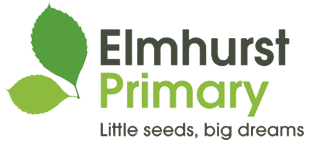Debating
At the heart of our curriculum offering at Elmhurst is a determination to empower all pupils to use their voices effectively. One of the key ways in which we develop these characteristics is through delivering debating classes and clubs. Debating is when teams of students compose and deliver arguments around important policy issues, such as climate change or how the country should be run. By doing this, the children are learning more about the world they live in and their place in it as local, national and global citizens. While the language, techniques and rigour of debating are woven throughout our teachers' classroom practice, we also offer a number of extra-curricular and enrichment opportunities to supplement this.
What do we do?
a) Competitions
Each year, we enter groups of children from years five and six into formal debating competitions. These are accredited by organisations such as Debate Mate and see our pupils face schools from across the country. The independence, confidence and resilience they develop from these experiences are profound and transfer into their school and wider lives with huge benefits. We have a long and proud history of competitive debating, having been crowned Debate Mate national champions on more than one occasion. We take part in the annual Debate Mate Cup and their Urban Debate League. We are often the highest scoring team in the country. We also host our own East London League where we invite schools from East London to compete.
b) Clubs
We have a range of debating clubs that allow students to develop and progress in their skills throughout their Elmhurst careers. Miss Weaver runs an after school club on Thursday for Year 3-6 and Mrs Robinson runs a club after school on Friday. For one term each year, Debate Mate send trained mentors to develop the children's debating skills and they always need to use a curriculum designed for secondary and even sixth-form students because our children are already working beyond a primary level.
c) Classes
Every Friday afternoon, Mrs Robinson teaches a debating class during school time to 30 children from across years five and six. This systematically teaches debating skills, using a purposefully designed curriculum. Teachers of students who attend these classes often remark about the academic progress they see in them and many of them go on to represent the school at competitions
d) Year-group debates
We have debating skills embedded throughout our curriculum and, as a culmination of this, each year group hosts a debating tournament on motions based around an area they have studied. This gives children great accountability for their learning, as well as allowing them to deploy and develop their oracy skills. Teachers are encouraged to choose children who have not taken part previously or represented the school in debating, meaning the hope is that every child will have taken part in at least one formal debate by the time they leave Elmhurst.
e) Show debates
Our debating squads have developed such a good reputation that they are often used to mark special events and take part in show debates both within school and externally. We have held debates on issues such as the validity of war at Barking and Dagenham College, as well as being asked by Debate Mate to take part in events at venues including the Ivy and the Ritz as examples of the great work they do. Within school, we hold an annual community debate on a topical issue, involving students, parents and teachers, as well as hosting debates to help students grapple with big moments in society.
Why do we do it?
There are many benefits to be gained from debating but we believe they can be grouped into three main areas:
a) Confidence
Students who are taught how to debate learn to value their voice more highly and use it more effectively. This ability to speak up and make themselves heard is a huge boost in confidence and sees them engage far more easily and purposefully in class discussions and their wider life.
b) Soft-skills
Survey after survey has found that employers value communication skills within prospective employees, as well as characteristics such as resilience, independence and critical thinking. These are exactly the skills and attributes that debating, both within the classroom and beyond, develops. Therefore, by giving our children the opportunity to debate, we are setting them up with the best chance to succeed in later study and in their working life.
c) Academic achievement
Research now proves the positive classroom impacts that come from children learning how to debate. A major study by the Education Endowment Foundation found that students who learn through debating made an additional two months’ progress in English and science, and one additional month’s progress in maths, compared with those not taught this way. Separate research has shown that children both enjoy their lessons more and remember a greater amount of what they have learned when taught in ways that use their debating skills.

